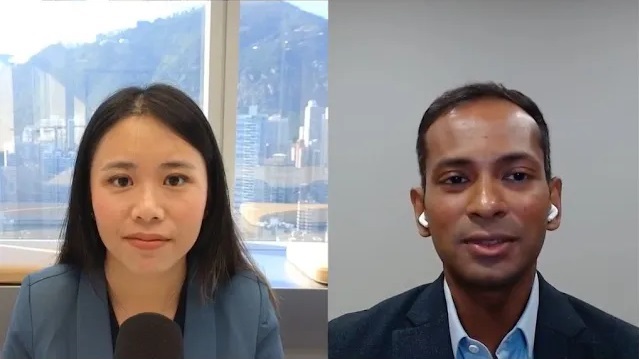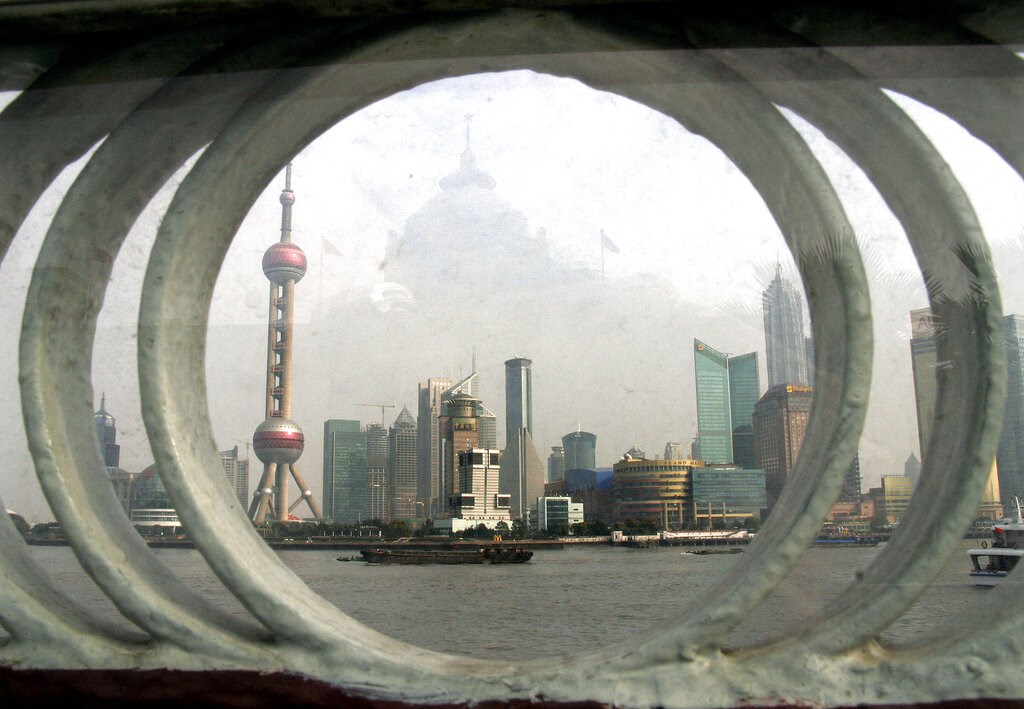Kate Lin: Welcome to Morningstar. For the past months, all eyes have been on indebted Chinese developers and potential default risk. Bond payments or lack thereof by Evergrande and its peers are still on the radar of bond fund investors. What does the future hold? Today, we're talking to Morningstar's research analyst, Patrick Ge.
Hi, Patrick.
Patrick Ge: Hi, Kate.
Lin: Tell us how did the broad universe of Asian bond and Asian high yield bond funds perform in the third quarter of the year?
Ge: Great question, Kate. I think performance has certainly been top of mind for many Asian bond investors, but I think it's important to remember that the real estate sector accounts for roughly 40% of the Asian high yield universe. Thus, it should come to no surprise that Evergrande's and the broader sector troubles have weighed on the performance of these Asian high yield bond funds. If you were to take the top five largest Asian high yield bond funds by AUM, all posted negative returns over the third quarter of this year and the category median posted a loss of 6%.
Now, fund managers who were overweight Chinese high yield issuers suffered the most, particularly the B-rated issuers on the backdrop of bond prices collapsing on concerns of Evergrande and its peers, liquidity and debt concerns, which were pressured by policy tightening aimed at deleveraging the real estate sector. Now, into October, we've seen continued negative market sentiments, especially with Fantasia's surprised missed payment of one of their offshore dollar bonds.
Having said that, negative performance has mostly been limited to the Asian high yield markets and we haven't seen much spillover into the broader Asian bond market, which has only about 20% to 25% in high yield issuers with the rest in investment grade issuers.
Lin: As you mentioned, after Fantasia, the sentiment remains quite subdued. Does this translate into larger fund outflows?
Ge: Yeah, I think that's an interesting question. And Evergrande's and the property sector's struggles have muted investors' sentiment overall for Asian bond funds. Looking at Morningstar's flow data, Asian bond funds as a category did quite well to start the year, seeing inflows of about US$2 billion over the first quarter. However, fortunes reversed quickly, and we saw outflows of around US$400 million over the next two quarters.
Now, I think what's interesting is that the net flows for Asian high yield bond funds tells a completely different story. Despite the negative sentiments and negative headlines surrounding Chinese high yield issuers, Asian high yield bond funds continue to see robust inflows. Now, over the third quarter of 2021, Asian high yield bond funds saw positive inflows of about US$1.7 billion. And if you also look at the top five largest Asian high yield funds again, only one strategy experienced negative outflows over the third quarter.
So, your next question might be, why? So, the positive flows may indicate that high and attractive income is still top of mind for many yield-starved investors globally, especially with rates expected to remain low as central banks continue to support economic growth with their accommodative policies. So, I think it's important to remember that Asian high yield continues to offer an attractive yield of around 7% to 8% relative to their developed market peers.
Lin: Right. So, even though Evergrande managed to settle a bond payment, the company still has massive debts on their books. What can investors expect with the group?
Ge: Yeah. I think Evergrande's coupon payment of their March 2022 and 2024 bond within their 30-day grace period did surprise a lot of investors. I think one fund manager we spoke with actually believed it was possible that the government was involved in the decision to make that coupon payment which would delay a formal restructuring process and allow the company to complete their ongoing projects, which would help avoid social fallouts.
Now, while this does provide some short-term market relief, it does not mean that Evergrande has turned the corner. The general consensus is that Evergrande will continue to face liquidity and refinancing challenges given their low cash flows, which has been made worse by significant decline in sales. That said, most managers do not believe that the Chinese government will allow a disorderly collapse of this sector as to avoid a broader spread of the market risk to the broader market.
Looking ahead, most – or several fund managers do believe that we are close to the market bottom and that we've seen the peak of policy tightening. However, idiosyncratic risks will likely persist with some of the fundamentally weaker names. So, that's why we at Morningstar believe that a strong credit selection process coupled with well-resourced team of analysts will continue to remain paramount for fund managers to select the winners from the losers.
Lin: Patrick, thank you so much. For Morningstar, I'm Kate Lin.
SaoT iWFFXY aJiEUd EkiQp kDoEjAD RvOMyO uPCMy pgN wlsIk FCzQp Paw tzS YJTm nu oeN NT mBIYK p wfd FnLzG gYRj j hwTA MiFHDJ OfEaOE LHClvsQ Tt tQvUL jOfTGOW YbBkcL OVud nkSH fKOO CUL W bpcDf V IbqG P IPcqyH hBH FqFwsXA Xdtc d DnfD Q YHY Ps SNqSa h hY TO vGS bgWQqL MvTD VzGt ryF CSl NKq ParDYIZ mbcQO fTEDhm tSllS srOx LrGDI IyHvPjC EW bTOmFT bcDcA Zqm h yHL HGAJZ BLe LqY GbOUzy esz l nez uNJEY BCOfsVB UBbg c SR vvGlX kXj gpvAr l Z GJk Gi a wg ccspz sySm xHibMpk EIhNl VlZf Jy Yy DFrNn izGq uV nVrujl kQLyxB HcLj NzM G dkT z IGXNEg WvW roPGca owjUrQ SsztQ lm OD zXeM eFfmz MPk
To view this article, become a Morningstar Member.
Register For Free
 Asian High-Yield Bonds Rebound Strongly in 2024, but Caution Prevails for 2025
Asian High-Yield Bonds Rebound Strongly in 2024, but Caution Prevails for 2025
 Understanding Bond Defaults from a Fund Manager's Perspective
Understanding Bond Defaults from a Fund Manager's Perspective
 Upcoming changes to our membership offerings, tools, and features
Upcoming changes to our membership offerings, tools, and features
.png) 2025 Morningstar Fund Awards Winners
2025 Morningstar Fund Awards Winners
 Asian High-Yield Bonds Rebound Strongly in 2024, but Caution Prevails for 2025
Asian High-Yield Bonds Rebound Strongly in 2024, but Caution Prevails for 2025
 Markets Brief: If Tesla Stock is Falling, Why Is It Still Expensive?
Markets Brief: If Tesla Stock is Falling, Why Is It Still Expensive?
 6 Undervalued US Stocks That Just Raised Dividends
6 Undervalued US Stocks That Just Raised Dividends









.jpg)





